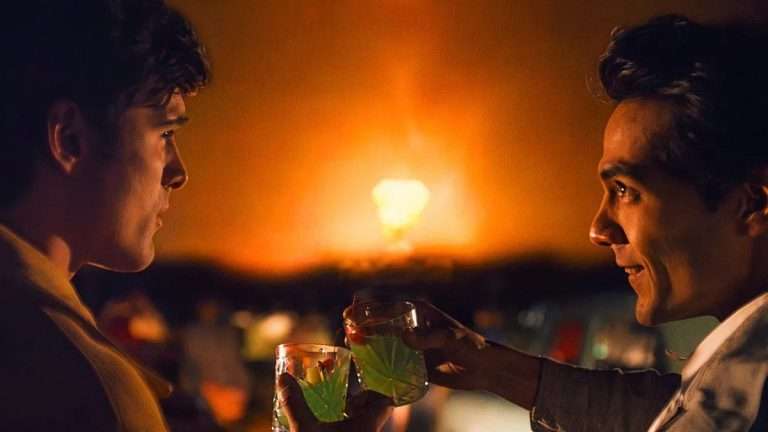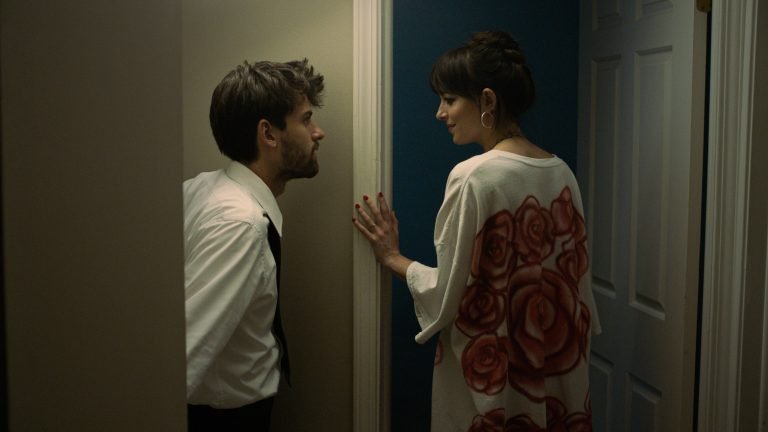Let me begin with an honest confession. It was with a fair degree of caution I walked into Agnieszka Holland’s latest film, Green Border. There were several things I was skeptical about, despite intently going into the film with the barest of information, except for it is a reckoning with the ever-palpable urgency of the refugee crisis. Refugees as subjects are cheap bait for maudlin drama. With them, the narrative gets an easy opportunity to appeal to a viewer’s emotions. While Holland’s film managed to nip all my doubts, it’s not to say she doesn’t jab at the heart.
It’s piercing as well as makes conscious decisions to swerve into a multi-pronged dissection of a society that’s closing its ranks yet also offering spaces of openness. It is a stirring and painfully vital call for compassion and inclusivity in a world that seems to get more and more dangerously ruptured and determinedly divided. As Holland is gesturing in her film, all the purported leaders have let us down, and the onus has to be directly borne by us. Some of us may choose not to take it on and avert risk, but there will always be a ragtag team who will rally forth.
The film switches between a panoply of perspectives. The year is 2021. There’s the original track of a Syrian family joined by an Afghan teacher, Leila (Behi Djanati Atai), hoping to make it through the Belarus-Poland border to reach Sweden and receive shelter at a relative’s place. The family expected an easy, smooth journey, reassured by the Swedish relative that everything had been arranged for. Little do they know the horrors and the never-ending loop of an imbroglio ahead.
The car they are traveling in is halted by patrolling border guards and thereon begins a long, grueling nightmare that refuses to pass. For a brief while in the forest adjoining the border, the family is exultant when they discover they are in the European Union. This relief is only fleeting as the border police are constantly skulking about on the lookout for incoming refugees, whom they categorically and tellingly refer to as ‘tourists.’ The refugees are well aware they must be supremely cautious and measured in their movements through the immensely politically fraught terrain, but the desperation keeps canceling out any judicious moves.
The fear and paranoia are brilliantly tapped, particularly in a scene where Leila seeks the help of a tractor driver. He offers her water, but she is promptly alarmed when she notices him calling someone. Terrified at the thought he could be informing the authorities, she scampers back into the forest, which serves as a central setting for much of the film.

Holland orchestrates the tensest, gut-wrenching scenes at night, as the refugees are basically tossed like a football between the border guards on either side. Someone in the film spells it out, nobody wishes to take responsibility for these lives seeking asylum. Tomasz Naumiuk’s camerawork plunges us breathlessly into the center of the devastation that plays out with a sense of repetitive, slow corrosion of hope. Each time the refugees think they are making progress towards Poland, they are scooped up and flung across the border to Belarus.
But as difficult and tortuous the unending journey through the drawn-out night of misery seems the flickering gestures of humanity and compassion exchanged among strangers stuck in shared ordeals burnish the film with a resolute hope. None of the trapped characters turn petty and wholly self-serving, even amidst scarce resources. While Leila is constantly sourcing water for the Syrian family, looking out for the kids, and offering them a fresh change of clothes after a rapid shower, the brutality comes mostly from the guards who have been trained to believe the refugees aren’t people but ‘live bullets.’
Divided into chapters, the film deliberately weighs the voices of both the border guards and the Polish activists who warily help out and administer to the immediate needs of the stranded refugees. What’s especially fascinating and remarkable is how the film underlines and challenges the limits the small bunch of activists themselves consider to their acts of service. They simply cannot risk venturing into the exclusion zone; otherwise, the administration would easily swoop on them and shut down their organization. It takes a regular person, Julia (Maja Ostaszewska), to rouse a greater audacity in their structures that are circumscribed by legal bounds.
A direct encounter with a refugee in the bleakest situation (a breath-stopping scene involving a swamp) compels her a re-evaluation to the help she thinks she should extend, also calling for the support and cooperation of her community. In Green Border, Holland makes an impassioned, seething plea against indifference and passive complicity in the hostilities and rampant inhumanity bolstered and normalized by regimes we have brought to power. While the film recognizes the emotional and psychological toll on the unwitting everyday people who have signed up for the actions of national leaders, it importantly circles back to the migrants, generating enough hair-raising, blood-curdling echoes to our present moment.



![Counterpart [2018–] – A Captivating Otherworldly Premise that Burrows Deep into Human Self](https://79468c92.delivery.rocketcdn.me/wp-content/uploads/2018/04/cover-1-768x432.jpg)


![Feast [2021] ‘MUBI’ Review: An insightful yet frustrating Feature](https://79468c92.delivery.rocketcdn.me/wp-content/uploads/2022/03/Feast-2021-768x432.jpg)

